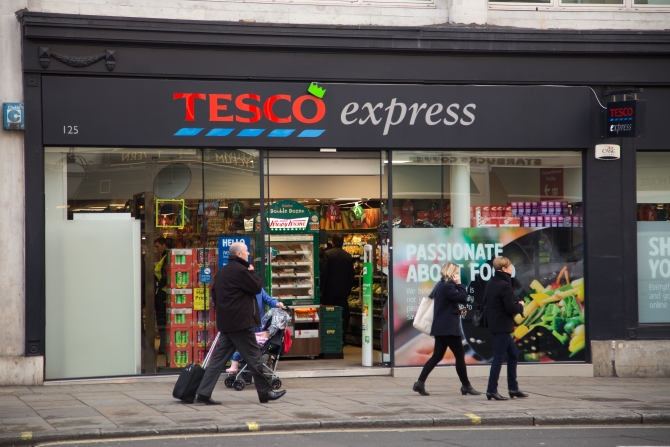Earlier this week, the news that Tesco had posted its worst ever set of results and has been forced to write down the value of its property portfolio shocked retail industry watchers.

Now, as the fallout continues, analysts are debating ways in which the group could begin to recoup some of its losses, with retail analyst Mike Dennis of Cantor FitzGerald recommending a wave of further store closures.
Mr Dennis believes that Tesco executives, led by chief executive Dave Lewis, should consider closing up to 200 of its underperforming stores and supermarkets, and focus on the remaining 700 larger profitable outlets.
This, he argues, would amount to a saving of £40 million and would allow for the additional closure of a distribution centre. Moreover, he recommends Tesco takes note of the points outlined in a previous Cantor FitzGerald study into the structure of the group’s portfolio.
He explains; “In our research note, entitled “Box Cutter” dated 11th July 2014, we stated that Tesco needed to address the 2.67 million sq ft of uneconomic superstore and hypermarket retail space.
“We believe this space could be used for profitable destination leisure facilities, concessions in various related home categories and other healthcare services.”
Somewhat surprisingly, the fallout from Tesco’s announcement has not been as pronounced as many would have expected, at least in terms of the stock market. Shares in fact rose by 1.35 pence to 236 pence per share in the hours following the bombshell, indicating that investors and economists are retaining some hope that Dave Lewis’ much-lauded turnaround will begin to bear fruit in the coming year.
In terms of the immediate future, Tesco is focusing upon the closure of loss-making aspects of the business and building up a stronger relationship with disillusioned customers – this has led to the offloading of its music and video streaming Blinkbox division and the closure of six Harris + Hoole coffee shops.
However, it will also seek to expand areas of business in which consumer interest remains strong, having confirmed plans to grow both its convenience store Tesco Express and subsidiary Dobbies Garden Centre chains.
Euromonitor analyst Philip Benton believes that the major issues facing Tesco are not only discounters but also more upmarket rivals such as Waitrose.
He adds; “Tesco were keen to bring footfall back to their out-of-town stores by acquiring casual dining chain Giraffe and coffee shop chain Harris + Hoole and introducing branches within Tesco stores, but the strategy has failed to take off with the retailer forced to close six unprofitable Harris + Hoole cafés in London.
“The retailer is in the midst of a huge restructuring after selling off much of its portfolio including Blinkbox and Tesco Broadband as well as the forthcoming sale of market research unit Dunhumby and undergoing a complete overhaul of its leadership.”